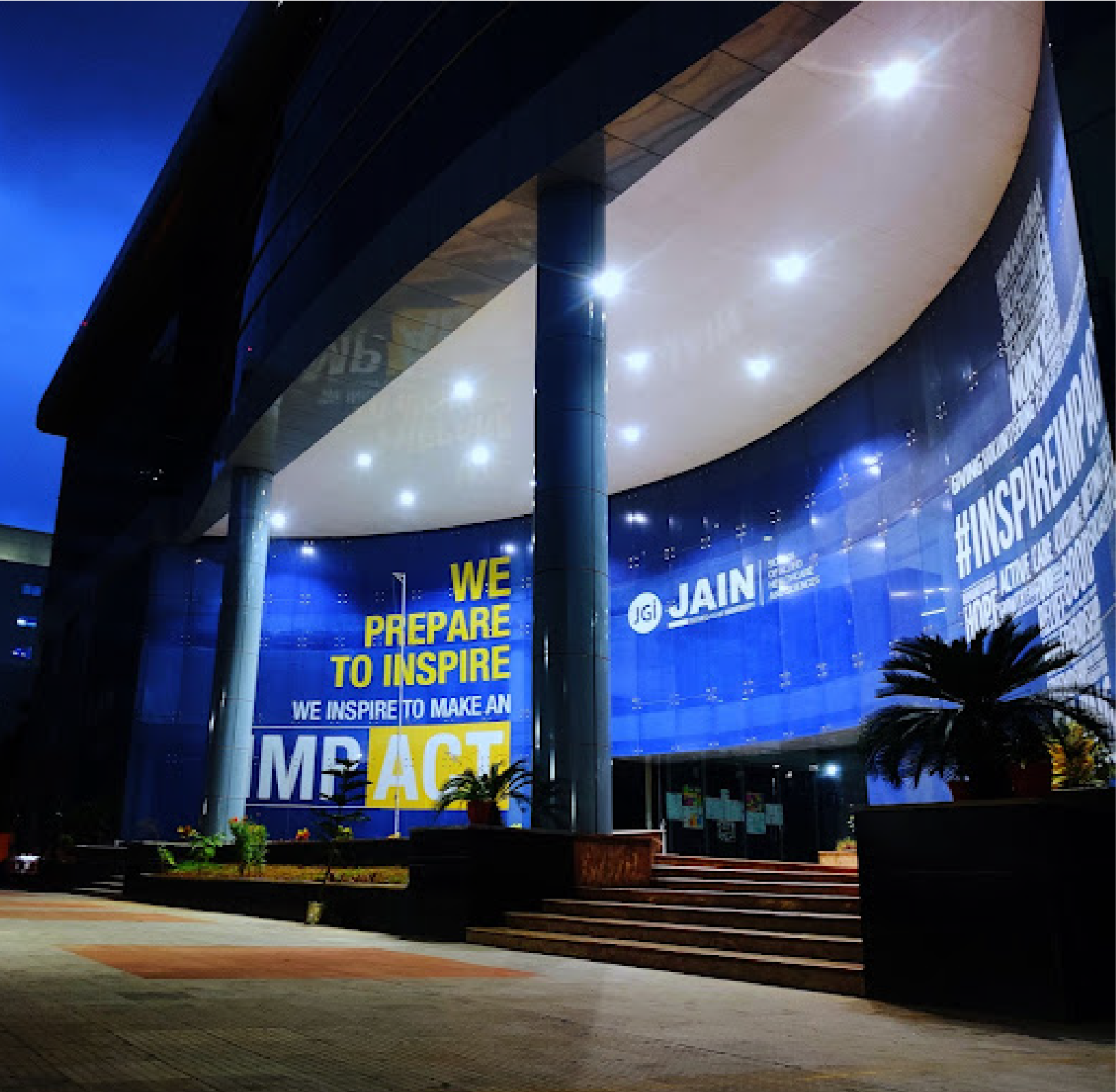B.Sc Medical Lab Technology Eligibility:
The minimum qualification for BSc Medical Lab Technology is a minimum of 50% in the 10+2 examination from PUC/ICSE/CBS/A Level/US 12th Grade or an equivalent board. With Physics, Chemistry, and Biology as mandatory subjects, along with a passing grade in English. Alternatively, candidates with an IB qualification should have completed a minimum of 24 credits.
Contact us:
Phone Number: 9606978661, 6366828477
Email : sahs@jainuniversity.ac.in
Curriculum Structure:
BSc Medical Lab Technology subjects provide a comprehensive understanding of laboratory techniques, diagnostics, and medical research.
| Semester |
Name of the subject
|
| Semester 1
|
- Anatomy I
- Physiology I
- Pathology – I
- Immunohematology And Blood Banking
- Environmental Studies
- Fundamentals Of Innovation And Venture Development In Entrepreneurship 1
- English I
- Mind Management And Human Values 1
|
| Semester 2
|
- Anatomy – II
- Physiology – II
- Pathology – II
- Clinical Haematology -I
- Clinical Enzymology And Automation
- Introduction To Anaesthesia Technology– II
- Fundamentals Of Innovation And Venture Development In Entrepreneurship 2
- English – II
- Mind Management And Human Values I
|
| Semester 3
|
- Biochemistry I
- Microbiology I
- Communicative English
- Clinical Haematology -II
- Parasitology And Virology
- Diagnostic Cytology
- Pcl 3 - Research And Entrepreneurship Project
|
| Semester 4
|
- Biochemistry – II
- Microbiology – II
- Practical: Biochemistry – II
- Practical: Microbiology – II
- Diagnostic Molecular Biology And Practical
- Indian Constitution
- Research And Entrepreneurship Project
- Database Management
|
| Semester 5
|
- Immunology And Serology -I
- Histopathology And Histotechniques -I
- Clinical Endocrinology And Toxicology
- Principles Of Lab Management And Medical Ethics
- Pcl-5 Research And Entrepreneurship Project
- Computer Applications
- HealthCare Administration
|
| Semester 6
|
- Immunology And Serology -II
- Histopathology And Histotechniques -II
- Advanced Diagnostic Techniques
- Biostatistics
- Ethics And Values
- Pcl-5 Research And Entrepreneurship Project
|
Studies after B.Sc Medical Lab Technology:
Postgraduate Diploma in Clinical Research:
Explore opportunities in clinical research, focusing on the design, conduct, and analysis of clinical trials.
Master of Science (M.Sc) in Medical Laboratory Technology:
Pursue an advanced degree to deepen your knowledge in medical laboratory sciences and potentially qualify for higher-level roles.
Management and Administration:
Graduates can explore roles in laboratory management and administration, overseeing laboratory operations, quality control, and regulatory compliance.
Certifications and Specialisations:
Obtaining certifications in specialized areas within medical laboratory technology, such as molecular diagnostics or clinical genetics, can enhance career prospects and expertise.
Career progression after pursuing B.Sc Medical Lab Technology:
| Duration |
Roles and responsibilities
| Salary |
| 0-3 years
|
Medical Laboratory Technician:
Lab Technologist
Trainee Clinical Research Associate:
|
₹2.5 lakhs to ₹4 lakhs per annum
|
| 3-5 years
|
Senior Medical Laboratory Technician
Lab Supervisor
Clinical Research Associate
|
₹4.5 lakhs to ₹7 lakhs per annum
|
| 5-10 years
|
Laboratory Manager
Senior Lab Technologist
Clinical Research Manager
|
₹8 lakhs to ₹12 lakhs per annum
|
| 10 years and beyond
|
Laboratory Director
Head of Laboratory Services
Senior Clinical Research Scientist
|
₹12 lakhs to ₹20 lakhs per annum
|
Please Note: Salaries can significantly increase based on leadership roles and responsibilities. These salary ranges are approximate and can vary based on factors like the size and reputation of the employer, the candidate's expertise, and the region of employment.
Salaries can vary based on prevailing market dynamics and individual skill levels.


